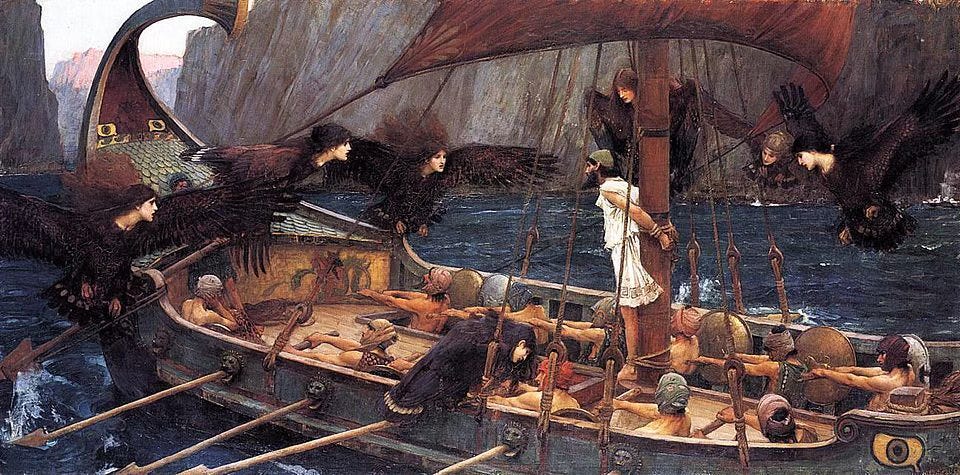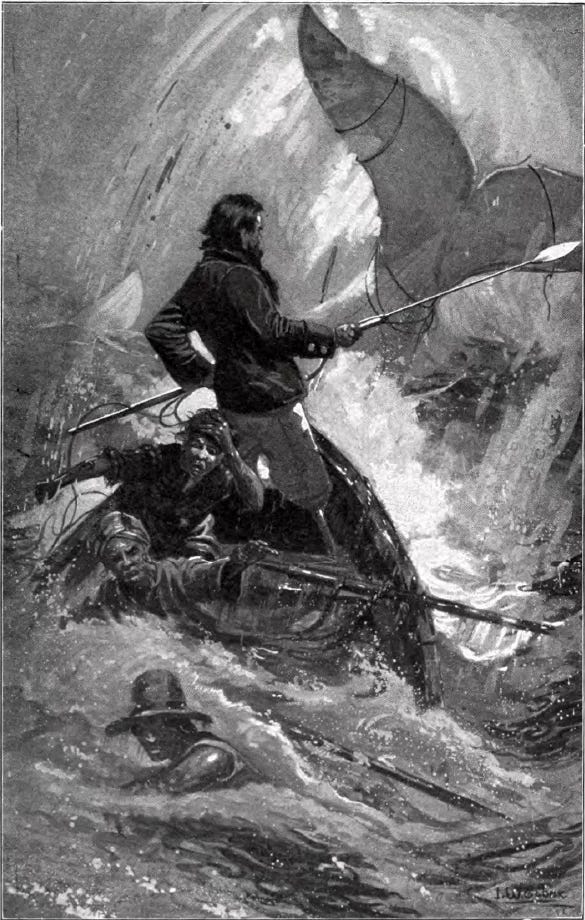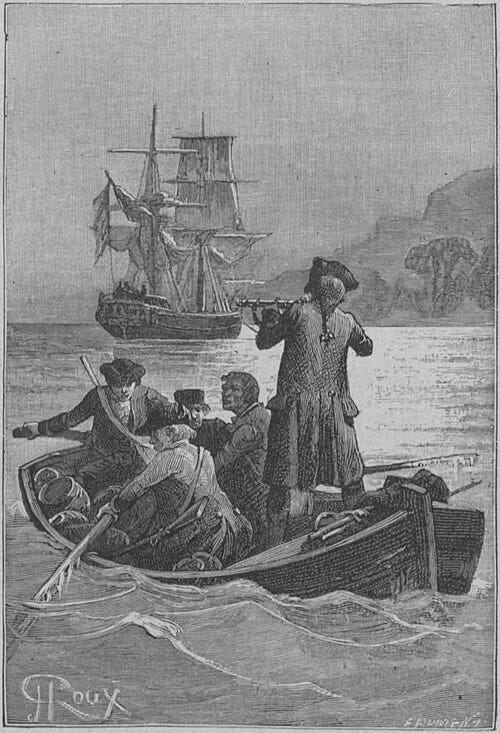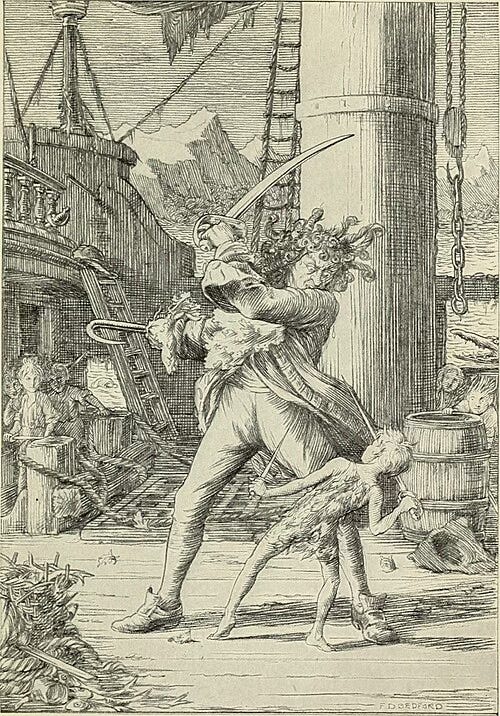Now, I, Nephi, have decided to make these new plates, not at the commandment of the Lord, but to record the mysteries of God that accompanied our journey across the great waters to the promised land. And this account is not found in the records of my father, nor in the metal plates containing the ministry and the prophecies. Wherefore, I write it to record the things of my mind and soul, and to marvel at them. They shall never see the light of day, save it be the Lord’s will. But I, Nephi, believe that, in due time, they shall come unto the Gentiles who understand the words of the books, and they shall manifest their full meaning, which I know not . . .
For behold, as we left the land of Bountiful and went into Irreantum, we were driven about before the wind for the space of many days. And it came to pass that Laman and Lemuel and the sons of Ishmael, and their wives, began to rejoice themselves, even with dancing and singing and speaking rudely. Wherefore, I, Nephi, did speak harshly unto them that they might remember the Power that sustained us, lest we should be sunk in the depths of the sea. But behold, they were irritated, and they tied me with cords to a post of the ship, so that I could not move. And it came to pass that the sphere or director ceased to operate, and a mighty and terrible tempest began to drive us back.
Under these circumstances, I thought I heard a beautiful song coming from the sea. My brothers also heard it and desired to throw themselves into the water because of its beautiful harmonies. But behold, although I was bound, I ordered them to place beeswax in their ears and endure the temptation, for otherwise we would be dashed upon the rocks and drowned. Fortunately, they obeyed me. And behold, I, Nephi, also desired to throw myself overboard to draw near to that song, but my strong bonds prevented me. And thus, we came upon the shore of a great island . . .
Laman and Lemuel untied my bonds, for they feared the possible inhabitants of this land and wished me to lead them with Laban’s sword. So, we climbed through a rugged region until we found vestiges of civilization. The settlers welcomed us in peace, and when we came to understand one another, we learned that the place where we were was called Middle-earth. They called themselves Númenóreans, for they originally came from Númenor. They were especially amazed by my sword, for it reminded them of Narsil, the red and white flame of their traditions. They also showed us the White Tree, which comes from Nimloth, the Fair, whose fruits are silver. This tree, which they also called the Memory of the Eldar and the Light of Valinor, was of such exquisite whiteness and brilliance that it reminded me of the one my father had seen in his dream and the Spirit had shown me on the mountaintop. For the Númenóreans it represented Isildur’s descendants’ right to reign.
They also possessed stones that were perfect spheres and, when at rest, seemed like glass or crystal, of deep black color. With them, they could see things that had not yet happened or that were a great distance away. They reminded me of our sphere or Liahona. They called them palantiri, and those who mastered their use were the wise Istari, a kind of prophets. I believe that if our father Lehi had lived among them, he would have become a good Istari, like the Gandalfs or Sarumans they exalted.
Middle-earth was inhabited not only by these men, but also by elves, dwarves, and some called “halflings,” though we never saw them. There were preparations for war against a dark force that was advancing against them. When Laman learned that the attack might involve orcs, nazgûl, and dragons, he no longer wanted to remain there and began urging us to return to the ship. So we did, after providing ourselves with plenty of fresh water.
Despite the pleas of our father Lehi and our mother Sariah, my brothers tied me back to one of the carved timbers, and we continued our journey.
As we were about to depart, another ship arrived at the small, gray harbor. It carried a large arrow in its bow, attached to a very long rope coiled around the deck. From what little we could gather, its captain, tall and broad, as if made of solid bronze like the plates brought from Jerusalem, was obsessed with capturing a large fish or sea monster. This creature had devoured one of his legs, so he used one carved from bone instead. Gray-haired and gloomy, his face was marked by a livid scar . . .
Farther back on the boat, we spotted a young man and his peculiar companion, dark-skinned and with drawings all over his body. As the ships passed, the young man, with sadness in his eyes, shouted to us, “Call me Ishmael.” I will never forget his image and the name he spoke, as it is the same name as my wife’s father, who accompanied us on our journey through the desert.
Upon reaching open sea, the storm once again violently blew us off course. And so, the first day passed . . .
After a night of strong winds, waves, and little sleep, we discovered, as the fog dissipated, that we had run aground on a new white-sand beach. Being untied again by my brothers, we saw, in the distance, some locals watching us in surprise. They were dressed in unusual clothing, and we couldn’t help but notice the presence of a beautiful woman with golden hair. They were surrounded by strange mechanisms whose use we couldn’t decipher. While we were trying to make ourselves understood, a large number of natives emerged from behind a high palisade, bearing crude javelins and rudimentary bows and arrows. They carried the woman away, and none of us could prevent it, due to their quantity and speed. While the woman’s companions discussed possible courses of action, the sound of drums began to grow from the jungle, followed by a mournful and incomprehensible chant, from which one syllable grew increasingly accentuated: “Kong! Kong! Kong!”
What happened next remains a bit hazy in my mind. On one side, enormous spiders fled toward the beach, while a gigantic apelike form tore through the trees, its fists pounding on its chest. Both the beast’s growl and the woman’s distant scream of terror chilled our blood. This was not a place to stay long . . .
All our men rushed back to the ship and pushed the ship forward desperately, aided by the rising tide, and we put out to sea again.
As we left the small bay where we had run aground, we crossed paths with another boat with a broad sail. From its sterncastle arose a disordered chorus of men under the influence of some spirit from bottles:
Fifteen men on the dead man’s chest— Yo-ho-ho, and a bottle of rum! Drink and the devil had done for the rest— Yo-ho-ho, and a bottle of rum!
A young man, who identified himself as Jim, managed to tell us they were searching for treasure and pointed out Long John Silver, the sea cook turned captain of the boat, who was also missing a lower limb, which he had replaced with a wooden leg and a crutch. He was carrying a parrot on his shoulder.
I tried to explain to them that this wasn’t a good island for treasure hunting, but, as I was still tied to the ship’s mast, they likely couldn’t hear, and ignored my warning.
As we were caught again in a whirlwind that was driving us back, night fell. And so ended the second day . . .
Behold, dawn found us driven toward the shores of a new and mysterious island. Following the procedure they had already established, my brothers temporarily freed me to help in the gathering of probable wild fruits. The island was partially inhabited. We met strange beings with equally strange names: Cyrus Smith, Pencroff, Harbert and his servant Neb. We learned that they had arrived by air from a conflict between the North and the South of their nation. The spirit told me that they came from a future time, from the promised land toward which we were headed, and that the seer who would bring to light the history of my people would also prophesy about that war.
We saw their House of Granite and the caves in the bowels of the earth. We were given knowledge of a metal vessel that sailed underwater. And we met its creator and pilot, Captain Nemo. I entered the interior of the fantastic vessel and saw a richly decorated room leading to a library whose luminous coverage poured in a torrent of light. A wide door led into a vast hall where all kinds of natural treasures were stored: gold, silver, and precious stones, in greater variety and abundance than those we had lost at the hands of Laban back in Jerusalem.
Upon returning to the surface, we felt the earth shake and could see the fumaroles of a volcano erupting. Burning chunks of rock and thick soot surrounded us, and we barely managed to return to the ship, ready to set off again. And I was tied up once more.
Our trajectory brought us into contact with another sailing craft. Laman and Lemuel no longer wanted to interact with other sailors, and less with these, who threatened us with swords and axes. Besides, that black flag with a skull didn’t bode well. The captain of the vessel had both legs, but where one of his hands should have been, a menacing metal hook appeared. In the other hand, he brandished a multi-pronged whip, which he used to threaten some frightened children huddled on deck. The crew grotesquely intoned:
Yo ho, yo ho, the scratching cat, Its tails are nine, you know, And when they’re writ upon your back . . .
The last line was never known, for behold, a kind of angel appeared from the air, followed by another, smaller one with wings. He descended before the children and protected them with his sword. The man with the hook turned pale . . .
“Peter Pan!” cried the children.
The wind blew us away just as the battle began, and we never saw them again, but our father Lehi managed to see that the boat was being followed by an immense crocodile, similar to those he had seen in the Nile.
And so ended the third day . . .
Now on the fourth day, the storm worsened, and we were about to be swallowed up by the depths. Seeing God’s judgments upon them, my brothers repented of their wickedness and freed me for good this time. My wrists and ankles were swollen and painful. I prayed to the Lord, the winds ceased, and the storm subsided. The compass started working again, so I steered the ship back on course for the promised land.
The rest of the history of my people is found on the other metal plates I have previously prepared. Behold, as I, Nephi, near the end of my days, I know not when the Lord will take me to his bosom.
The adventures of those three days have been a source of reflection and wonder every day of my life. As time has passed, I have come to wonder if they really happened. If they were only dreams and visions with meanings I don’t know. Perhaps my bonds and lack of food and water impaired my understanding. However, some of the memories are very real. I can still perceive the smells, the textures, the tastes of many of those moments. I have had visions and dreams throughout my life, but these have been different.
As I conclude this record, I have had the feeling that I did not write the plates, but that they wrote me. There’s also the growing impression that, at times, the golden plates converse with each other, as if they didn’t need the contact of mortals to be interpreted. Perhaps this is another mystery to be unraveled in the times to come . . .
Mario R. Montani lives in Bahía Blanca, Argentina. He studied art at the Universidad Nacional del Sur. His tale “So Ask No More . . .” (Irreantum 17.2) was selected as the best short story of 2021 by the Association for Mormon Letters. He has also published in Wayfare and the Mormon Lit Lab. In 2009, he produced “The Gray Castle and Other Stories,” published by Editorial Dunken. Since 2016, he has been a member of the Cofradía de Letras Mormonas (Mormon Literature Fellowship), a group that promotes literature among Spanish-speaking Latter-day Saints. He also manages the blog mormosofía (https://mormosofia.wordpress.com/).








A wonderful romp! Love the mash up especially with Middle Earth. Interesting parallels there.
What a fun story. Great Work!